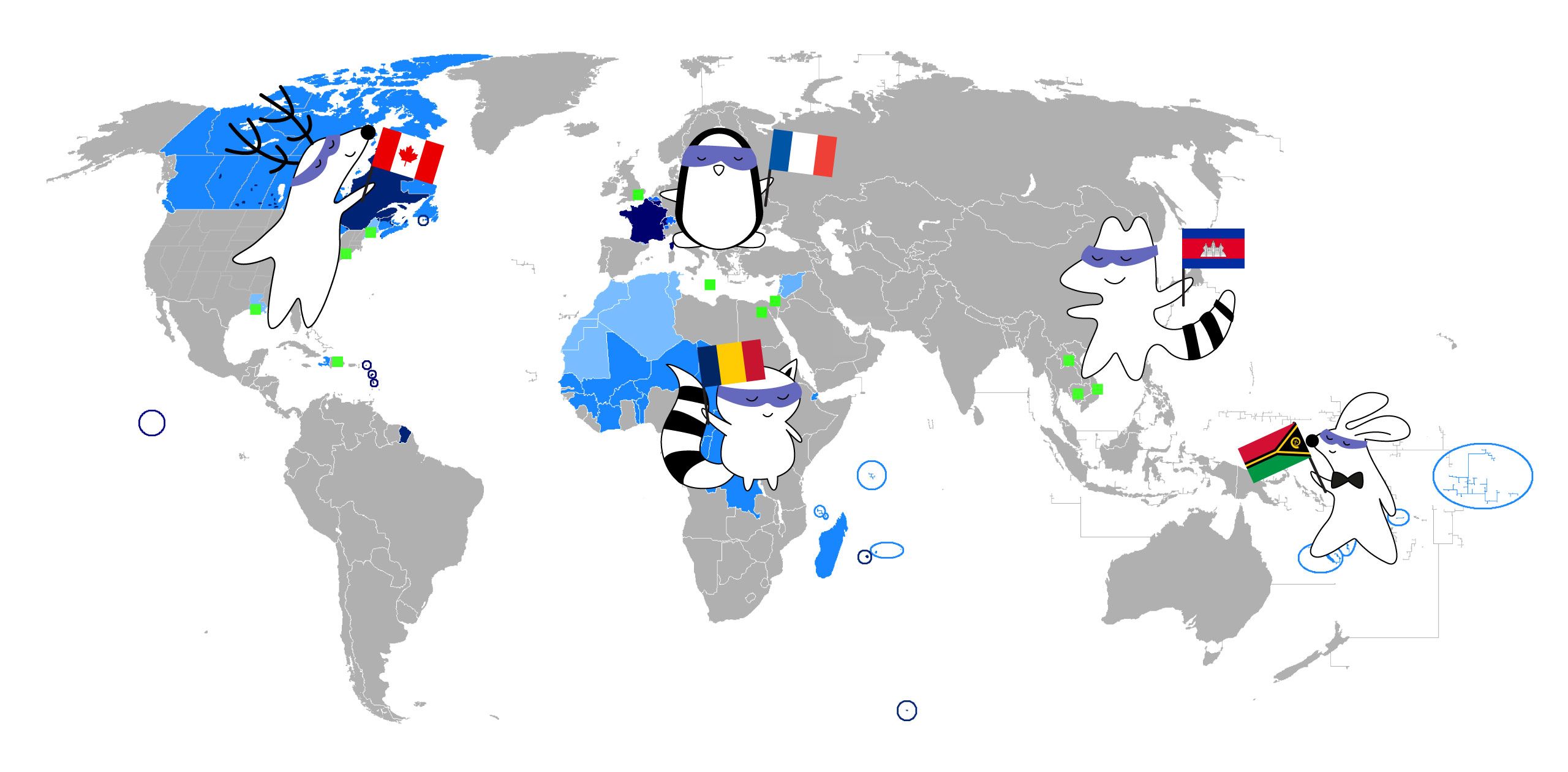
Learning how to say “yes” and “no” in French can save you a lot of trouble when visiting France - or when talking to native speakers. In our blog, we have already covered the topic of agreeing with someone in French - so now it’s time to talk about disagreement.
Don’t think that “no” in French is simply non. Just like there are many variations for this short word in English - for example, “nope” or “no way” - there are also many options to say “no” in French. In the article below, we will talk about all the different words and expressions that you can use to say “no.”
Of course, you don’t have to learn all the vocabulary you will find here - most often, a classic “non” will be enough to answer the question negatively. However, if you want to communicate with people efficiently and become fluent in French at some point - you’ll have to at least get familiar with the different ways of saying “no” in French.
Learn French with Langster
Let’s Start Simple - Non
French
English
Non
No
Non is the most basic way to disagree with someone in French, and even if you’re a beginner, you probably have come across this word by now. Short and sweet, it can be used in almost any situation regardless of how formal it may be.
What to remember when saying “non” in French? The nasal sound in place of -on. You won’t pronounce the last letter here, but you’ll say something like /nõ/. For more information about nasal sounds, check our article on the basics of French pronunciation.
Different Expressions You can Use With Non
Non can be suitable for many situations, but sometimes you might want to modify it slightly - maybe you want to add some words and change your intonation to express your emotions in a clear way.
Here are some of the most common expressions you can use for saying “no” in French using non:
French
English
Je crois que non
I don't think so
Moi non
not me / I don't
N'est-ce pas ?
no? / is it not?
Non et non !
absolutely not!
Non plus
not (that) either
... ou non ?
… or not?
Que non !
absolutely not!
Mais non
but no
Nope - Nan
Watch out for the pronunciation there! If you don’t use the right sounds when saying “non” in French, something like nan may come out. Don’t worry, though - if you’re in an informal situation, that will be okay.
Today, nan appears in place of non in the spoken language pretty often, especially if we’re talking about young people. You can see it as an alternative for the English “nope” (so try to avoid using it on formal occasions).
French
English
Nan
Nope
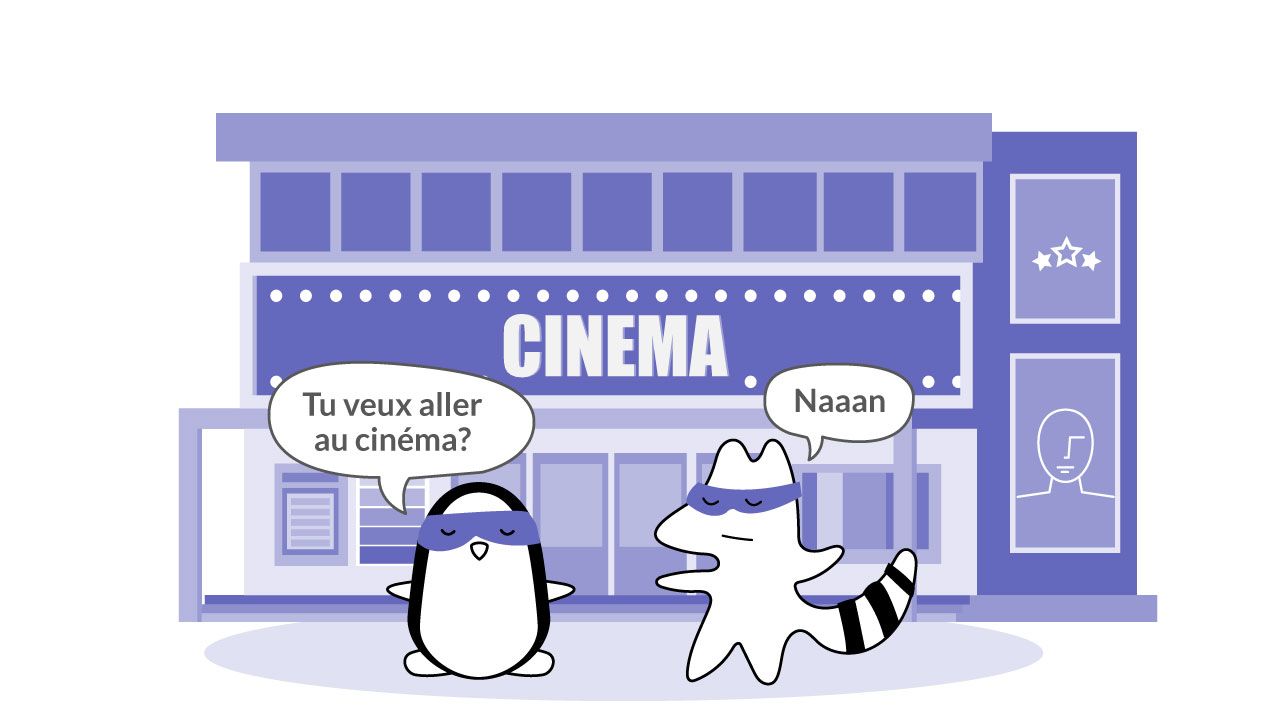
No, thank you - Non, merci
Imagine a situation: you’re buying a croissant in a Parisian boulangerie, and the baker asks whether you want a gâteau or a pain au chocolat as well. You know that the following morning, you would come here as well to try something else, so you want to politely refuse the offer. What would you say in that situation?
French
English
Non, merci.
No, thank you.
In English, there is a slight distinction between “no, thank you” and “no, thanks.” However, in French, non, merci is good enough to use both in casual and formal situations.
Not At All - Pas Du Tout
French people can be very polite - so often, you might hear pas du tout (not at all) in place of a simple non. If you want to sound like a native speaker, try to make this phrase a part of your active vocabulary.
French
English
Pas du tout
Not at all
You can use this phrase to indicate that something is not bothering you at all - for example, when someone asks whether they can open a window in the office.
French
English
Ça te dérangerait si j'ouvrais la fenêtre ? - Non, pas du tout.
Would you mind if I opened the window? - No, not at all.
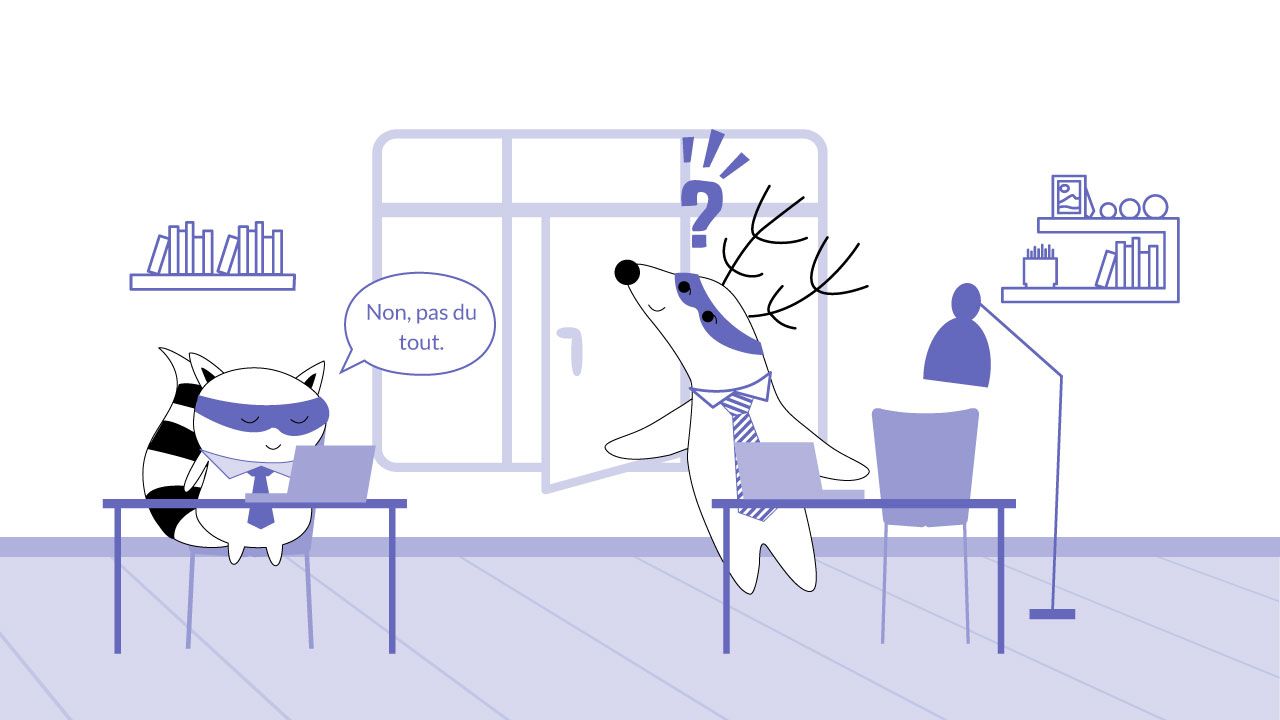
However, you can also say pas du tout to emphasize the negation - for example, if a friend asked you whether she looks like she gained weight.
French
English
Est-ce que j'ai l'air gros aujourd'hui ?- Non, pas du tout !
Do I look fat today? - No, not at all!
Never - Jamais
When saying “no” in French, you might want to indicate that what someone proposes to you will never happen / or never happened. In that case, you can use the simple French word jamais along with the traditional non.
For example:
French
English
Es-tu allé à Paris ? - Non, jamais.
Have you been to Paris? - No, never.
Not Yet - Pas Encore
What if a friend asks you if you have seen the latest movie and you haven’t? Or a coworker wonders if you were able to finish the task they asked you to do and you haven’t had a chance to get to it? Well, in that case, you would need to say pas encore (not yet).
For example:
French
English
Gabriel t'a déjà demandé en mariage ? - Non, pas encore.
Did Gabriel propose to you already? - No, not yet.
Maybe Later - Peut-Être Plus Tard
But what if someone invites you to go to the movies with them, but you don’t have time at the moment? Of course, if you don’t want to go at all, you can stick to a simple non - however, if you would like to do that later, say peut-être plus tard (maybe later).
For example,
French
English
Voulez-vous plus de pizza ? - Non, peut-être plus tard.
Do you want more pizza? - No, maybe later.
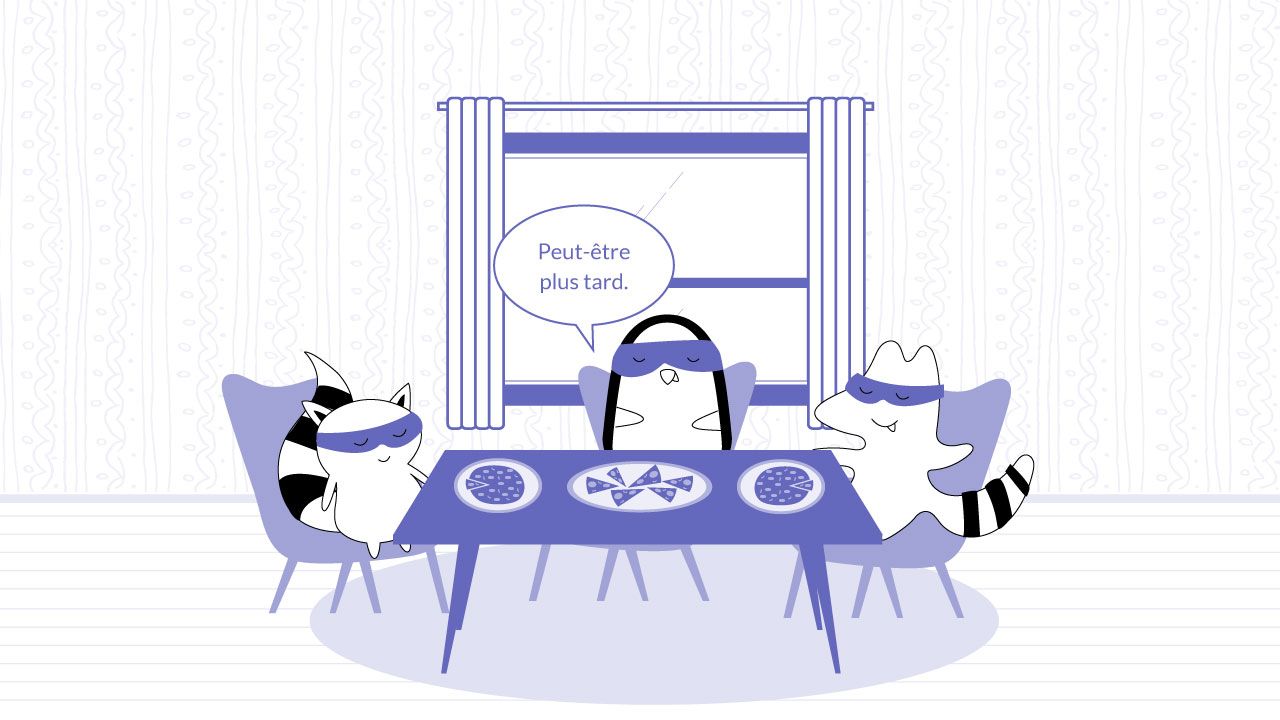
In similar situations you can also use:
French
English
pas maintenant
not now
plus tard
later
No Way - Pas Question
This phrase literally means “no question,” but it is really an alternative to the English “no way.” However, you won’t use it the same way as the English do, to show disbelief or amazement. Instead, “pas question” would mean something like “no way that would happen.” For example:
French
English
Vous achetez cette robe ? - Pas question - je n'ai pas assez d'argent.
Are you buying this dress? - No way - I don’t have enough money.
Other Ways to Say “No Way” or “Not Gonna Happen” in French:
French
English
Impossible
impossible
Hors de question
out of the question
Absolument pas
absolutely not
Oublie
forget it
Oh No! - Oh Non
Do you want to show your disappointment in French? You can do that the same way you would in English - say oh non ! (oh no).
French
English
oh non !
oh no
Of course, you wouldn’t use this phrase to answer a question or say “no” directly in French. Instead, it’s a good way to express your emotions about something.
French
English
Oh non, j'ai taché ma chemise préféré !
Oh no, I’ve stained my favorite shirt!
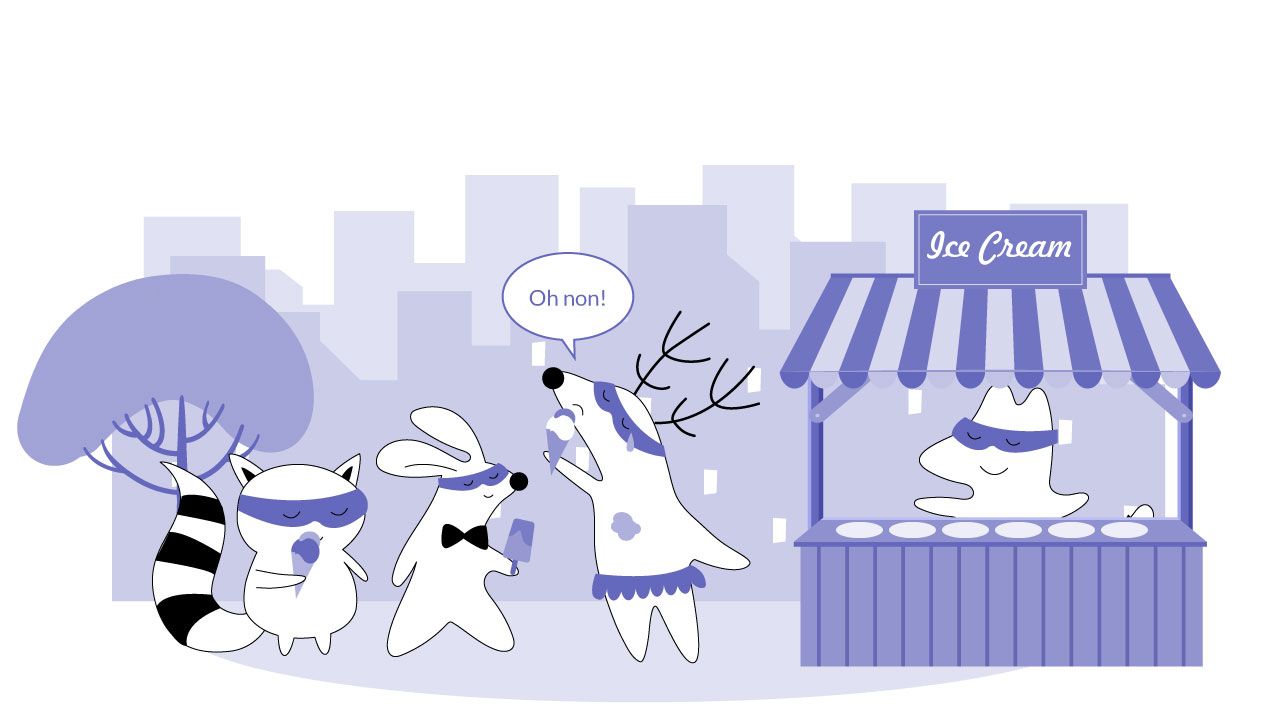
Final Thoughts
As you can see, there are quite a few ways to say “no” in French - and depending on the context, you can make use of these very different phrases.
What you should remember here is that often, a simple non may be enough to answer someone’s question or refuse a proposition. So, if you can’t figure out what exactly to say, you can always say “no.”
However, if you want to communicate with native speakers on a higher level or simply make your experience visiting France as exciting as possible, you might want to utilize other ways to say “no” in French - such as pas du tout, pas question, or non, merci.
Don’t worry about mixing them up - it matters that you speak as much French as possible, and if you make an error, someone should correct you. And of course, don’t forget to practice more - for example, with the Langster app.








